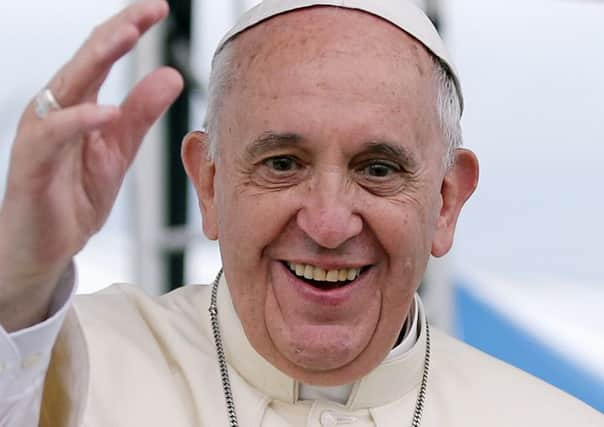Disputed guidelines on '˜our final resting place'


The instructions were released this week by the Congregation for the Doctrine of the Faith in Rome, with the full approval and blessing of Pope Francis.
For most of its 2,000-year history, the Roman Catholic Church only permitted burial, arguing that this best expressed the Christian hope in Resurrection. But in 1963, the Vatican explicitly allowed cremation as long as it did not suggest a denial of faith about the Resurrection of Jesus Christ.
Advertisement
Hide AdAdvertisement
Hide AdThe new diktat repeats that burial remains are preferred, but lays out guidelines for conserving ashes for those Roman Catholics who choose cremation.
It said this was done to counter what it called “new ideas contrary to the Church’s faith” that had emerged since 1963, including ‘New Age’ ideas that death is “a fusion” with Mother Nature and the universe, or the “definitive liberation” from the prison of the body.
In Northern Ireland today, only a very small minority of Roman Catholics and, indeed Protestants, prefer cremation, with the traditional church cemetery burial, particularly in provincial towns and villages, remaining by far the most popular option. Roselawn in South Belfast is the province’s only crematorium and the relative demand for funerals there will ensure business continues,
For many Christians, cremation is seen as a cold, uncaring means of placing human remains in a final resting place, with the pressing of a button removing the coffin and, in a conveyor belt operation, mourners hurriedly ushered out to make way for another bland ritualistic procedure.
Advertisement
Hide AdAdvertisement
Hide AdIn rural Ulster, churchyard and municipal cemetery burials will continue to be the norm, with the only pressing problem the increasing shortage of space, taken up through decades and centuries of funerals.
The Vatican, in its document, also said ashes and bone fragments cannot be kept at home, since that would deprive the Christian community as a whole from remembering the dead. Rather, Church authorities should designate a sacred place, such as a cemetery or church area, to hold them. Only in extraordinary cases can a bishop allow ashes to be kept at home. The document said remains cannot be divided among family members or put in lockets or other mementoes.
Nor can the ashes be scattered in the air, land or sea since doing so would give the appearance of “pantheism, naturalism or nihilism,” the guidelines said.
Dcument author German-born Cardinal Gerhard Mueller, was asked at a briefing if Pope Francis had any reservations about the text, particularly the refusal to let family members keep remains of their loved ones at home.
“The dead body is not the private property of relatives, but rather a Son of God who is part of the people of God,” Mueller said. “We have to get over this individualistic thinking.”